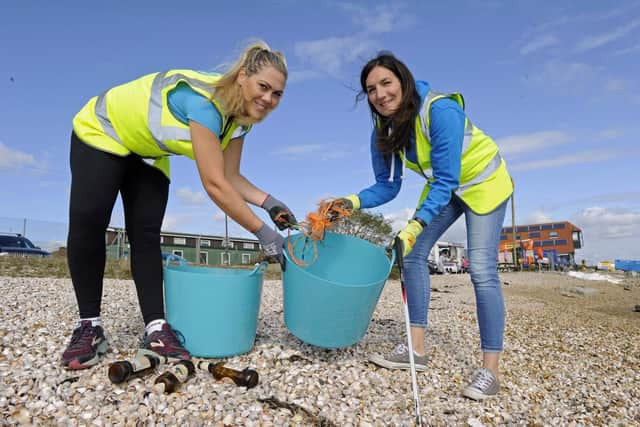Final Straw Foundation's water quality study finds E-coli and cocaine in Hampshire waters
and live on Freeview channel 276
Bianca Carr, from Emsworth, started The Final Straw Foundation five years ago after she’d ‘had enough’ of going to the beach and finding herself surrounded by litter.
She said: ‘I wanted to start a local group where we do some beach cleaning but not just beach cleaning. I wanted to start something where businesses could get involved there, where they could cut off the plastic pollution tap, cut off the source, turn that tap off and also go around and educate some children as to why we’re doing this in the first place.’
Advertisement
Hide AdAdvertisement
Hide AdSEE ALSO: Teenager arrested as police release CCTV image of potential witnesses following weekend stabbing


The charity’s latest project seeks to analyse which pollutants are in Hampshire's waters. Scientists from Brunel University and The University of Portsmouth, led by Professor Alex Ford, will be testing pre-storm and post-storm water samples, with early tests finding E-coli and recreational drugs in our waters.
‘It’s getting ridiculous,’ Bianca said. ‘Our ecosystems, our environment is getting so badly damaged by the amount of sewage that’s getting pumped into our seas, which has been known about forever – but was coupled with increases in the amount of spills that were happening.
‘It was a bit of a straw that broke the camel’s back and we said ‘right, lets look at this a little bit more closely’.’
Bianca felt that the data was required to bring about legislative change and support the ‘human justice’ aspect of her campaign by telling people exactly what they are swimming in at Portsmouth and Hampshire beaches.
Advertisement
Hide AdAdvertisement
Hide AdBianca added: ‘We are testing for 450 different chemicals and are finding all sorts of things. We’re finding recreational drugs, amphetamines, MDMA, cocaine, all sorts of things like that. We’ve got antidepressants, anti-seizure drugs.
‘We’ve found pesticides that are obviously flowing out of fields , down from the water runoff, so thats completely different to coming out of the sewage.’
Results for the study are already starting to come through, and Bianca said that water taken a few weeks ago from Langstone Harbour revealed E-coli and faecal streptococci in quantities 760 times the acceptable level established by the Environment Agency.
Speaking about the pollution caused by waste dumped in the sea, Bianca said: ‘It’s criminal. If I, as an individual person, were to walk down to the beach and pour some toxic waste into the sea, I’d be arrested and charged. We need to get a grip of the situation before its too late.’
Advertisement
Hide AdAdvertisement
Hide AdHe said: ‘We are making bold investments in environmental protection - £2bn between 2020 and 2025. And our strategy to reduce our use of storm overflows and support bathing water improvements is industry leading.
‘It is only in exceptional circumstances that any untreated wastewater is released, and 94 per cent of our bathing waters are rated excellent or good - our Budds Farm treatment works in Havant is currently undergoing an £18m investment, which will increase the size of its storm tanks by 50 per cent and enable it to treat more wastewater.'